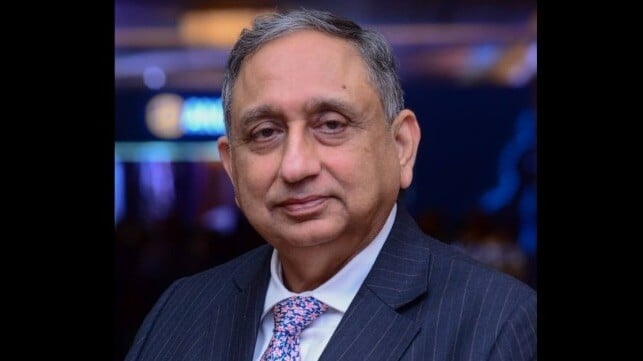“Enough is Enough”: MarinePALS CEO Slams Overload of Tasks on Board

The maritime industry has pushed the workload on seafarers to unsustainable extremes and must do a comprehensive review of the number of tasks required to be done on board compared to the number of people available on board, if it wants to attract and retain a skilled workforce, says Captain Pradeep Chawla, CEO of MarinePALS.
Captain Chawla has delivered a critical assessment of the maritime industry’s overbearing demands placed on seafarers.
“For an industry that relies entirely on the professionalism and resilience of its crew, we have created an exhausting burden on the seafarers by continuously adding tasks, without studying the time required for these tasks,” said Captain Chawla. “Every person involved in management of the ships and every study is hearing the seafarers saying, ‘Enough is Enough’ about what is demanded from them.”
With decades of firsthand experience at sea and over 31 years in senior leadership before retiring from Anglo-Eastern Ship Management, and as Chairman of GlobalMET, Captain Chawla is uniquely placed to call out what many in the sector quietly acknowledge. The system is broken, and it is crushing morale.
“A ship typically has over 2,000 maintenance tasks listed in the Planned Maintenance System. A simple study of time required for each task, versus the number of days and number of people available on board to carry out the tasks, will show the problems that the seafarers face. They need to handle navigation watches, fog and heavy weather, hectic schedules in port with PSC and charterers’ inspections, storing and bunkering and handling overload of ship/shore communications with various internal and external stakeholders.”
Welcoming the decision in the IMO MSC meeting to review the Resolution on the “Principles of Safe Manning” Captain Chawla stated that the industry has reached a point where the manning scales regulations need to be “comprehensively reviewed” keeping a clear-eyed perspective and hearing the anguish of the seafarers. “The problem of workload is not the same on a VLCC on a long voyage and say a chemical tanker on a short sea trade,” he says.
He admits that getting consensus on manning scales is a very difficult task but insists that there is a need to patiently work through different scenarios and to create legislation and guidelines that may need to be more “prescriptive” for certain ship types and certain trades.
Now leading MarinePALS, a company focused on simplifying and modernising seafarer training, Captain Chawla says small adjustments are not enough.

that matters most
Get the latest maritime news delivered to your inbox daily.
“What we need is a detailed discussion. Regulators, flag states, ship managers and associations representing seafarers, need to come up with genuine solutions and not guidelines that are interpreted differently by different stakeholders,” he says.
His message is clear. We say we care about wellbeing of the seafarers. Well, here is where it starts. Let us “hear” the seafarers.
The opinions expressed herein are the author's and not necessarily those of The Maritime Executive.
